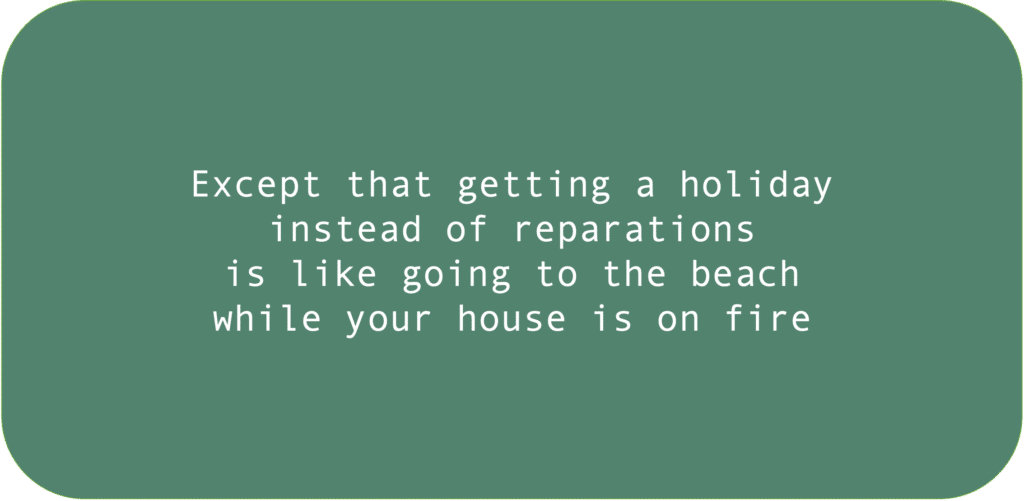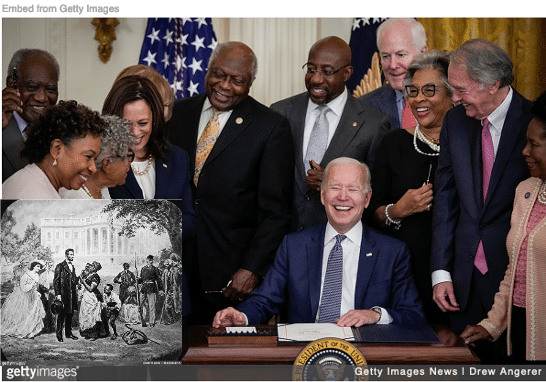
Emancipation Proclamation and Juneteenth
President Abraham Lincoln’s Emancipation Proclamation took effect on January 1, 1863. It freed all enslaved people in the Southern States.
But Union soldiers took two-and-a-half years to inform Galveston, Texas, of the Proclamation. Enslaved Blacks there finally heard the news of their freedom on June 19, 1865. Juneteenth commemorates this unconscionable delay.
Yet, that delay is not nearly as unconscionable as the 140 years the US government took to apologize for slavery in 2008.
America’s “Promissory Note“ calls for rectifying “the lingering consequences of the misdeeds committed against African-Americans under slavery and Jim Crow.“ That promise informs demands for reparations. But the ongoing delay in honoring it now seems terminal.
Juneteenth a holiday
Given that, a Juneteenth holiday smacks of patronizing consolation. Yet, just achieving this was a decades-long struggle.

But here’s how The Associated Press reported Wednesday on the long-overdue passage of the Juneteenth bill:
The House voted 415-14 Wednesday to make Juneteenth, or June 19, the 12th federal holiday. The bill now goes to President Joe Biden’s desk, and he is expected to sign it into law.
The vote comes as lawmakers struggle to overcome divisions on police reform legislation following the killing of George Floyd by police and as Republican state legislators push what experts say is an unprecedented number of bills aimed at restricting access to the ballot box.
I have championed Juneteenth and other civil rights causes for decades, as the links above attest. So, I know all too well the work we still have to do.
The “Jim Crow 2.0“ voter-suppression laws Republican legislatures are enacting in red states across the country are a testament to that. But this is the holiday Congress has made. Let us rejoice and be glad in it. But the fight continues – to overcome.
* This commentary was originally published on June 19, 2021 at 7:23 am